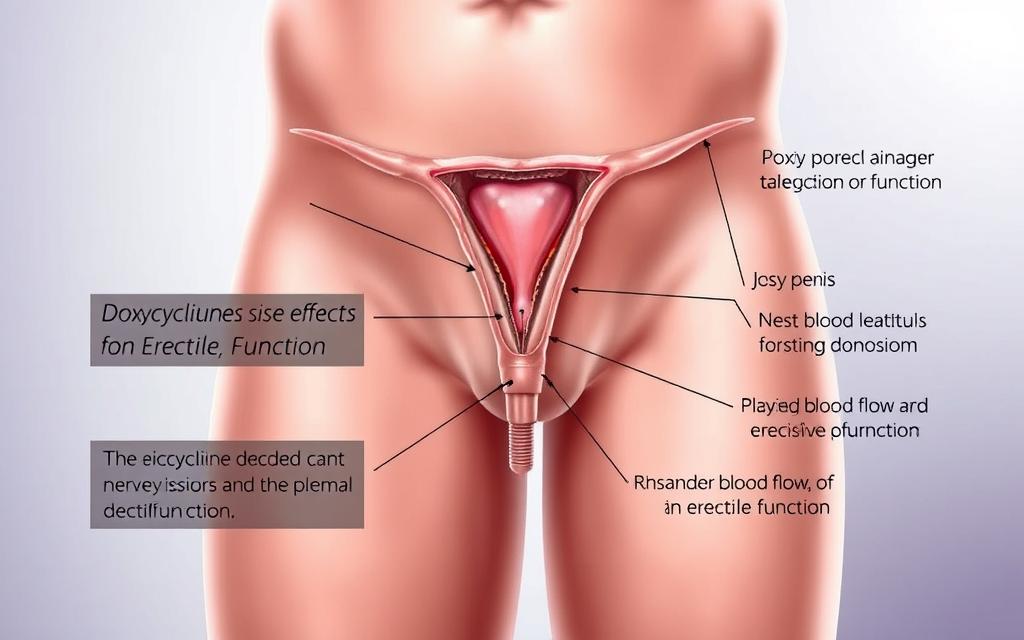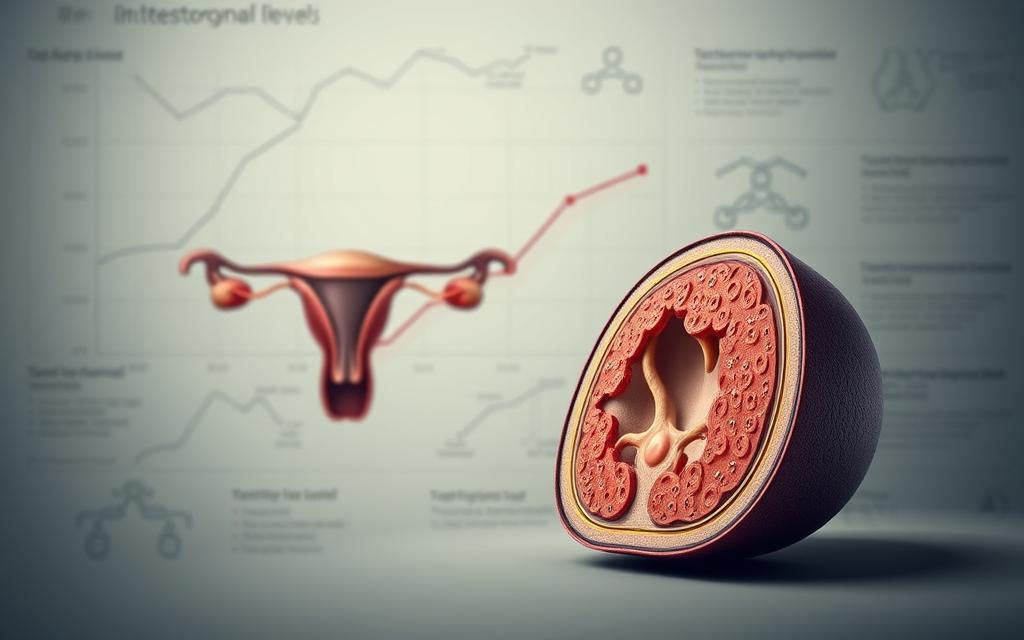Can High Testosterone Cause Erectile Dysfunction? Causes, Effects & Solutions
Testosterone plays a crucial role in male sexual health, influencing both physical and psychological aspects of sexual performance. While it’s known that low testosterone can lead to erectile dysfunction, the relationship between high testosterone levels and erectile dysfunction is more complex.
Research suggests that both low and high levels of testosterone can impact erectile function, leading to difficulties in achieving or maintaining an erection. Understanding the causes and effects of high testosterone on erectile dysfunction is essential for finding effective solutions.
For men experiencing erectile dysfunction, exploring the link between testosterone levels and sexual health is crucial. You can learn more about supporting testosterone production and improving erectile function by visiting Colorado Urologists, which discusses various testosterone boosters and their impact on erectile dysfunction.
The Relationship Between Testosterone and Erectile Function
Testosterone plays a crucial role in men’s sexual health, and understanding its impact is essential for addressing erectile dysfunction. Testosterone is a key hormone that influences various aspects of male sexuality, including libido, erectile function, and overall sexual well-being.
How Testosterone Normally Supports Sexual Health
Testosterone supports sexual health by regulating libido, facilitating the normal functioning of erectile tissues, and maintaining the overall health of the reproductive system. Normal testosterone levels are essential for achieving and maintaining erections. Research has shown that testosterone deficiency can lead to decreased libido and erectile dysfunction.
The Optimal Testosterone Range for Sexual Function
The optimal range for testosterone levels is generally considered to be between 300 and 1,000 ng/dL, with most men having levels between 400 and 600 ng/dL. Levels outside this range can lead to sexual dysfunction, including erectile dysfunction. Maintaining testosterone within this optimal range is crucial for supporting sexual health.
| Testosterone Level (ng/dL) | Sexual Health Impact |
|---|---|
| Below 300 | Low libido, erectile dysfunction |
| 300-1,000 | Normal sexual function |
| Above 1,000 | Potential for hormonal imbalance |
Can High Testosterone Actually Cause ED?
While testosterone is crucial for sexual health, exceptionally high levels may lead to erectile dysfunction in some cases. The relationship between testosterone and erectile function is complex, involving multiple hormonal and physiological processes.
The counterintuitive connection between elevated testosterone and ED is not entirely understood but is believed to involve the conversion of excess testosterone to estrogen.
The Counterintuitive Connection Between Elevated Testosterone and ED
Research suggests that very high levels of testosterone can sometimes lead to erectile dysfunction. This may be due to the body’s delicate hormonal balance. When testosterone levels are too high, it can disrupt this balance, potentially leading to sexual dysfunction.
How Excess Testosterone Converts to Estrogen
Excess testosterone can be converted to estrogen through a process called aromatization. This increase in estrogen levels can affect sexual function and contribute to erectile dysfunction. Maintaining a healthy balance between testosterone and estrogen is crucial for optimal sexual health.

| Hormone | Normal Levels | Effects of Imbalance |
|---|---|---|
| Testosterone | 300-1000 ng/dL | High: ED, Low: Decreased libido |
| Estrogen | 10-40 pg/mL | High: ED, Gynecomastia |
Understanding the intricate balance between testosterone and estrogen is key to addressing erectile dysfunction related to high testosterone levels.
Common Causes of Erectile Dysfunction Despite High Testosterone
Having high testosterone doesn’t necessarily mean a man will be free from erectile dysfunction. Several factors can contribute to erectile dysfunction, even when testosterone levels are within the optimal range or higher. Understanding these causes is crucial for addressing the condition effectively.
Psychological Factors: Stress, Anxiety, and Performance Pressure
Psychological factors play a significant role in erectile dysfunction. Stress, anxiety, and performance pressure can all negatively impact a man’s ability to achieve and maintain an erection. Chronic stress can lead to increased levels of cortisol, a hormone that can disrupt the body’s natural balance and impair sexual function. Anxiety about performance can create a vicious cycle, where the fear of not being able to perform sexually exacerbates the problem.
Vascular and Circulatory Issues Affecting Blood Flow
Vascular and circulatory issues are another common cause of erectile dysfunction. Poor blood flow to the penis can prevent a man from achieving or maintaining an erection. Conditions such as high blood pressure, diabetes, and atherosclerosis (the buildup of plaque in the arteries) can damage the blood vessels and impair circulation. Lifestyle factors, including smoking and a lack of physical activity, can also contribute to vascular problems.
Other Hormonal Imbalances That Impact Sexual Function
While high testosterone is often associated with healthy sexual function, other hormonal imbalances can still cause erectile dysfunction. For instance, an imbalance between testosterone and estrogen can lead to sexual dysfunction. Thyroid disorders can also affect sexual health by disrupting the body’s hormonal balance. Ensuring that all hormonal levels are within a healthy range is essential for maintaining optimal sexual function.
| Cause | Description | Impact on Sexual Health |
|---|---|---|
| Psychological Factors | Stress, anxiety, performance pressure | Impaired sexual function, erectile dysfunction |
| Vascular Issues | Poor blood flow, high blood pressure, diabetes | Erectile dysfunction due to reduced blood flow |
| Hormonal Imbalance | Testosterone-estrogen imbalance, thyroid disorders | Disrupted sexual function, erectile dysfunction |
Doxycycline Side Effects Erectile Dysfunction: What You Need to Know
Doxycycline, known for its effectiveness against various infections, may have unintended consequences on male sexual health. While it’s a commonly prescribed antibiotic, understanding its potential impact on erectile function is crucial for men considering or already taking this medication.
The use of antibiotics like doxycycline can have far-reaching effects on the body, beyond just combating infections. It’s essential to explore how these medications influence hormone levels and sexual function.
How Antibiotics Can Affect Hormone Levels and Sexual Function
Antibiotics, including doxycycline, can alter the body’s natural balance, potentially affecting hormone production and sexual health. The gut microbiome plays a significant role in hormone regulation, and antibiotics can disrupt this delicate balance.
- Alteration of gut microbiota
- Impact on hormone production and regulation
- Potential effects on sexual function and libido
Research suggests that the disruption of gut microbiota can lead to changes in hormone levels, including testosterone, which is crucial for sexual health.

The Connection Between Doxycycline and Testosterone Production
The relationship between doxycycline and testosterone production is complex. While direct evidence may be limited, understanding the potential mechanisms can provide insights into how this antibiotic might affect sexual health.
| Mechanism | Potential Effect on Testosterone | Impact on Sexual Health |
|---|---|---|
| Gut Microbiota Disruption | Altered Testosterone Production | Changes in Libido and Erectile Function |
| Hormone Regulation | Fluctuations in Testosterone Levels | Effects on Sexual Performance and Desire |
It’s crucial for men taking doxycycline to be aware of these potential effects and discuss any concerns with their healthcare provider.
Treatment Options and Solutions for ED with Normal or High Testosterone
For men with normal or high testosterone, erectile dysfunction can be treated with a range of solutions. While testosterone plays a crucial role in sexual health, other factors can contribute to ED, and addressing these factors is key to effective treatment.
Medical Interventions and Prescription Options
Medical interventions are often the first line of treatment for erectile dysfunction. Phosphodiesterase type 5 (PDE5) inhibitors, such as sildenafil (Viagra) and tadalafil (Cialis), are commonly prescribed to help improve blood flow to the penis.
Other medical options may include testosterone therapy adjustments if levels are not within the optimal range, despite being classified as “normal” or “high.” It’s essential to consult with a healthcare provider to determine the best medical approach.
Lifestyle Modifications to Improve Erectile Function
Lifestyle changes can significantly impact erectile function. Regular exercise, a balanced diet, and maintaining a healthy weight can improve overall vascular health, which is crucial for erectile function.
Quitting smoking and reducing alcohol consumption can also have a positive impact. Stress management techniques, such as meditation or yoga, can help alleviate psychological factors contributing to ED.
Natural Supplements and Alternative Approaches
Some men may find natural supplements helpful in managing erectile dysfunction. Herbal supplements like ginseng and L-arginine are believed to enhance erectile function, though their effectiveness can vary.
Alternative approaches, including acupuncture and therapy, can address underlying psychological issues that may be contributing to ED.
| Treatment Approach | Description | Potential Benefits |
|---|---|---|
| Medical Interventions | PDE5 inhibitors, testosterone therapy | Improved blood flow, enhanced erectile function |
| Lifestyle Modifications | Diet, exercise, stress management | Better overall health, reduced ED risk factors |
| Natural Supplements | Herbal supplements, L-arginine | Potential improvement in erectile function |
Understanding the Complex Relationship Between Testosterone and Erectile Dysfunction
The connection between testosterone levels and erectile dysfunction (ED) is complex and multifaceted. While testosterone plays a crucial role in sexual health, high testosterone levels can sometimes contribute to ED due to its conversion to estrogen.
Erectile dysfunction causes can range from psychological factors such as stress and anxiety to vascular and circulatory issues. Other hormonal imbalances can also impact sexual function, making it essential to understand the underlying causes of ED.
High testosterone and ED can be related, but it’s not the only factor. Treatment options and solutions for ED with normal or high testosterone levels include medical interventions, lifestyle modifications, and natural supplements. Understanding testosterone levels and their impact on erectile function is vital in addressing ED effectively.
By recognizing the intricate relationship between testosterone and erectile dysfunction, individuals can take the first step towards seeking appropriate solutions and improving their overall sexual health.
